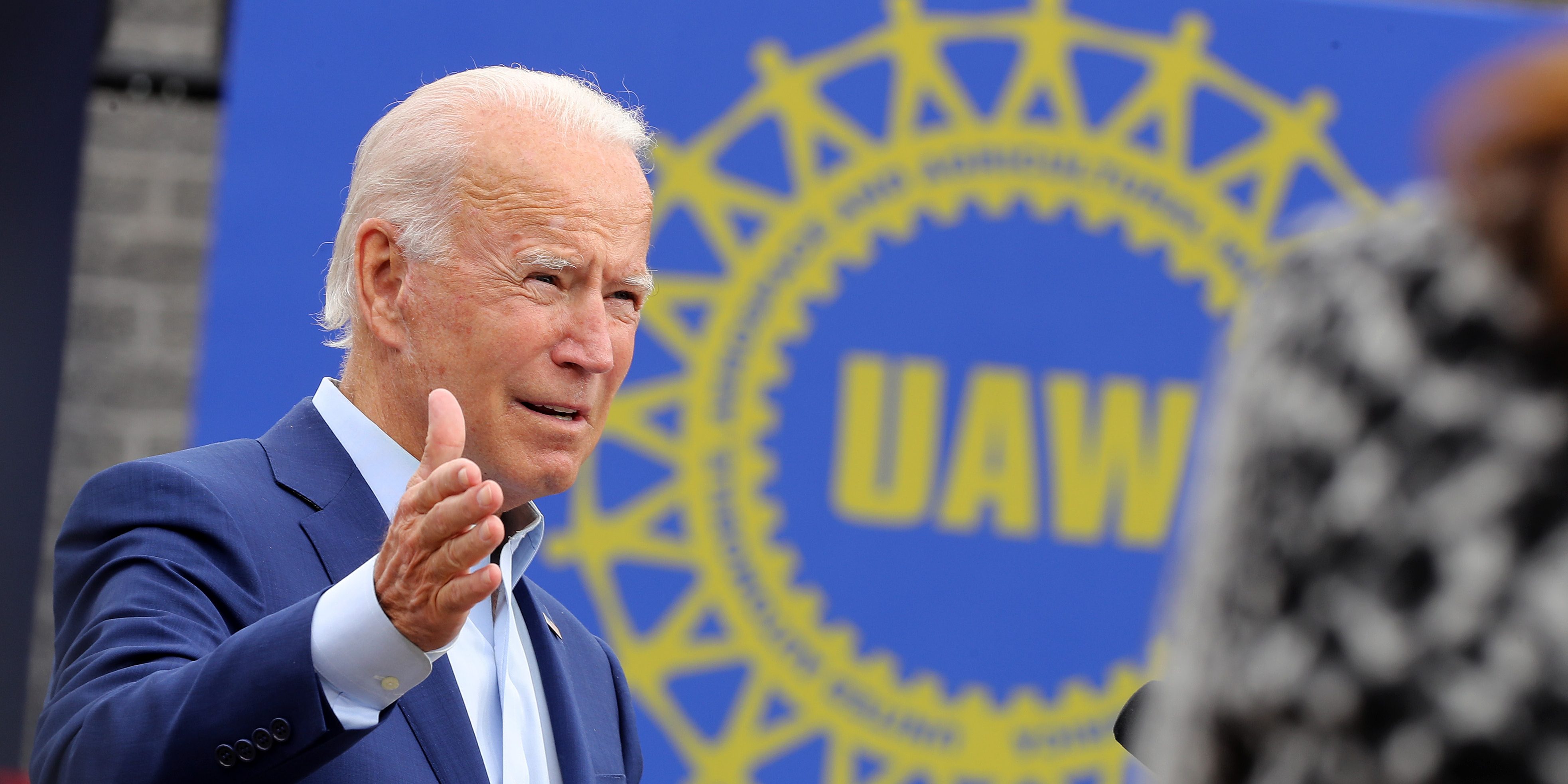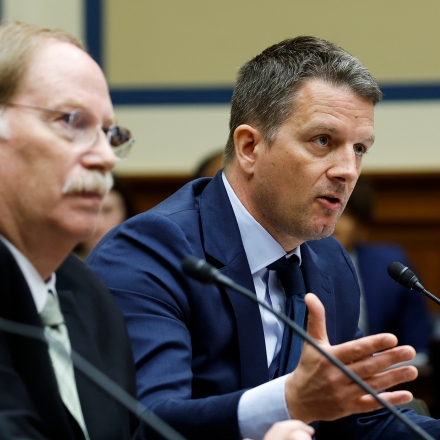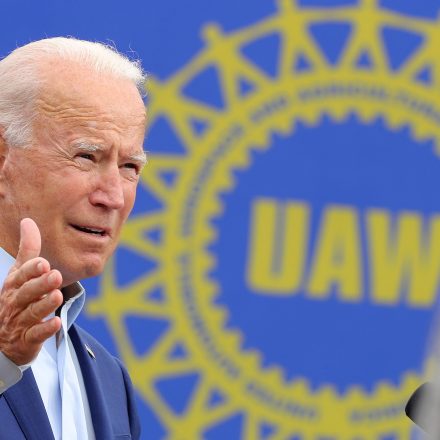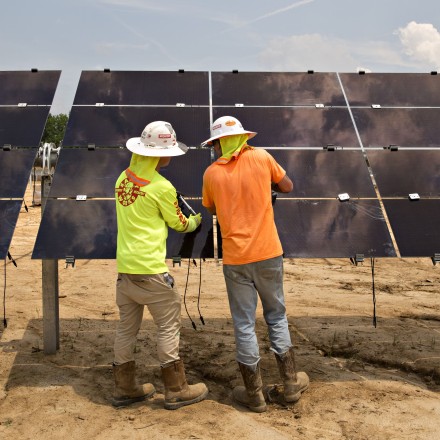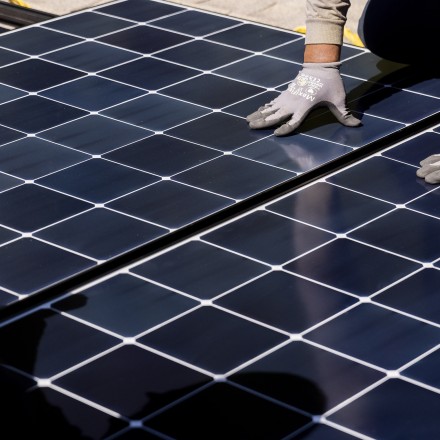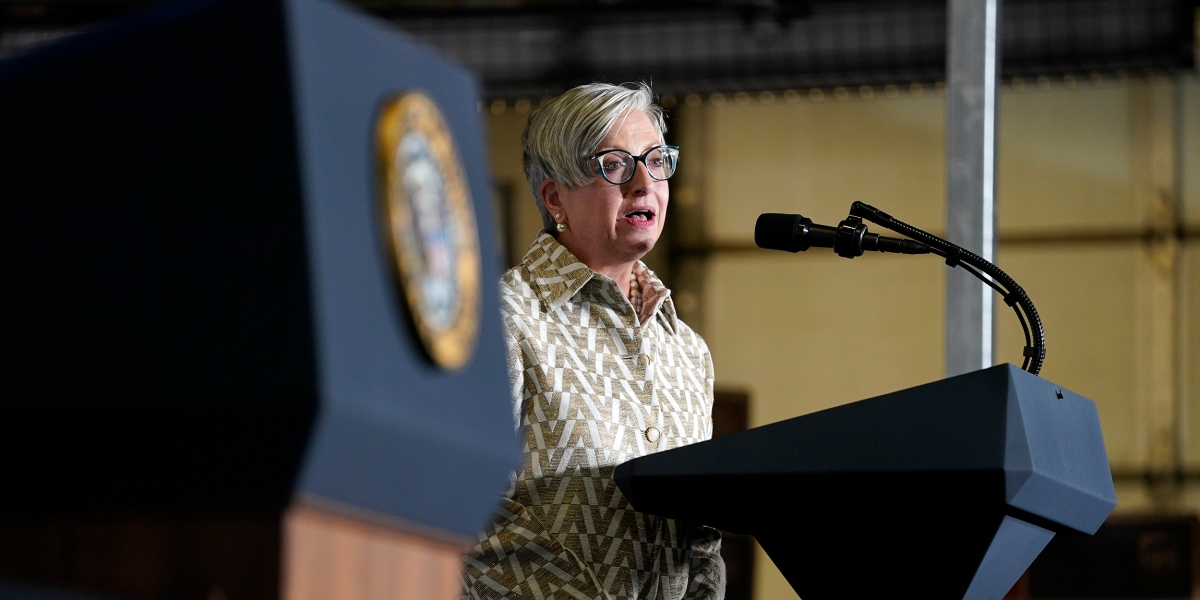In 2020, as the coronavirus pandemic raged unchecked across America, President Donald Trump offered Democratic state governors an exceedingly cruel ultimatum: If you want help from the federal government, you “have to treat us well.” That exchange — lifesaving medical equipment for blue-state political support — reflects the inverse logic of the Biden administration as it seeks to revamp domestic manufacturing by directing billions of dollars into deep-red states, money that will be used to subsidize lower-paying jobs that will ultimately be able to replace union work in states that voted for Joe Biden.
In late June, the Department of Energy’s Loan Program Office granted a $9.2 billion loan — its largest ever — to Ford and its joint venture partner, the Korean firm BlueOval SK, to build battery plants in Tennessee and Kentucky. The cash injection follows other projects, like a sprawling chip manufacturing plant and close to a dozen solar manufacturing sites across the South.
The loan, issued from the Department of Energy office that drew billions of dollars for investments in green energy under the Inflation Reduction Act, stems from Biden’s pledge to make half of all vehicles sold in 2030 zero emission. That undertaking means more plants that manufacture components of gas-powered vehicles are sure to close in coming years. Those jobs are overwhelmingly union and heavily based in swing states or blue states. While the administration’s investments so far may notch it a win in the war against offshoring and the White House’s perceived threat in the looming menace of Chinese competition, the White House’s handling of the transition to green energy — including where it invests federal dollars and whether it protects union workers’ jobs — will have implications not only for the climate crisis, but also for Democrats’ electoral prospects.
The success of the climate program will require continued federal commitment. Biden is placing a bet that clean energy investments could ultimately work the same way as the military-industrial complex. The military and its allied contractors have made sure to set up bases and/or manufacturing facilities in nearly every congressional district in the country, with extra attention paid to areas represented by key lawmakers. That has produced durable support for ever-expanding military budgets. Whether the same could be accomplished for the clean energy industry is an open question, but so far, Republicans from districts that have won federal awards have nevertheless voted to repeal the Inflation Reduction Act, which funds the tax breaks. By subsidizing the decline of union jobs, the Biden administration risks empowering lawmakers who will then move to end the subsidies altogether.
“The total lack of consideration for workers could certainly make the difference in 2024.”
“What Biden is doing is politically insane, environmentally bankrupt, and it’s poor economics,” Larry Cohen, former president of the Communications Workers of America and board member of Our Revolution, told The Intercept. “The White House and my old friend John Podesta” — who is overseeing the federal government’s spending of climate incentives in the Inflation Reduction Act — “should have labor-centered guidelines about where these investments are going, whether it’s in purple states like Michigan, whether it’s in Philadelphia, whether it’s in Ohio, there are acres and acres of devastated industrial landscape that need new investment as opposed to cornfields. The total lack of consideration for workers could certainly make the difference in 2024.”
During the 2020 presidential election, Biden won Michigan by just 150,000 votes. It was a hard-fought win for Democrats, who had lost the state in 2016 for the first time in two decades — and it was due in no small part to the United Auto Workers’, or UAW, political machine, which spent just under $10 million on nationwide political donations during the 2020 election cycle and many millions more on political outreach and media in Michigan. That money followed Biden’s promise to be the most pro-union president in recent memory, a claim he has continued to make while in office.
Ahead of 2024, Michigan Democrats find themselves in a strong position against their GOP opponents. Gov. Gretchen Whitmer cruised to reelection with a 10-point margin in November after seizing on the need to safeguard abortion access from GOP attacks, and, for the first time in 40 years, Democrats gained control of both of Michigan’s legislative chambers.
Despite the tailwinds, the Biden campaign will need to court every voter it can to clinch the election in what is still a purple state. Republicans, who will also be vying to gain a Senate seat in Michigan, have signaled that they believe the state is competitive given the election year turnout boost that a Trump candidacy will provide.
The UAW’s 130,000 members in Michigan — almost the same number of votes that made the difference for Biden three years ago — form an important voting bloc. In addition to their individual votes, UAW members are active donors and get-out-the-vote organizers. The union’s newly elected president, Shawn Fain, recently said the UAW would continue withholding the endorsement of its hundreds of thousands of members for Biden’s reelection until more progress was made on supporting members through the green energy transition.
Fain also lashed out at the president when news of the Energy Department loan to Ford broke, reminding him that union support is a privilege, not a right.
“We have been absolutely clear that the switch to electric engine jobs, battery production and other [electric vehicle] manufacturing cannot become a race to the bottom,” Fain said in a June 23 statement. “Not only is the federal government not using its power to turn the tide — they’re actively funding the race to the bottom with billions in public money.”
Rep. Rashida Tlaib, who represents autoworkers in her Detroit-area district, was similarly critical of the loan. “The federal government shouldn’t be subsidizing the automakers’ expansion into states that are hostile to labor rights,” Tlaib told The Intercept. “The automakers must act fairly towards its union workers, especially after the UAW workers sacrificed so much during hard times for the industry. The rapid transition to electric vehicles that we need cannot come at the expense of the people making them.”
Union members have already taken losses in the run-up to the Biden administration’s investments in green energy. General Motors, another one of the big three automakers, recently opened a battery plant in Warren, Ohio, where starting wages for union members are about half of what wages were at an Ohio plant the manufacturer shuttered in 2019. Sen. Bernie Sanders criticized GM’s reduction in wages at the new plant, which opened last year. “The government is putting a lot of money into transitioning our economy to a non-fossil fuel economy,” Sanders said in April. “We want to see workers get a fair shake, not just the CEOs of the companies.”
The same week Ford secured a loan for its joint venture, the manufacturer announced it would lay off significant numbers of employees, following a 3,000-person cull in August of last year. While the plants planned for Tennessee and Kentucky will create 7,500 jobs, according to the Energy Department, workers will have to fight for higher wages and benefits while the company continues to downsize its combustion operations.
When it announced the joint venture loan to Ford, the Department of Energy’s loan office project said that it was committed to creating good-paying jobs with labor protections. “[BlueOval SK] is actively engaging with local stakeholders to develop a diverse local workforce and network of suppliers. To ensure the availability of skilled labor for construction, BOSK is constructing the projects under project labor agreements. In addition, [the Loan Program Office] works with all borrowers to create good-paying jobs with strong labor standards during construction, operations, and throughout the life of the loan and to adhere to a strong Community Benefits Plan.”
Yet neither the loan office nor the White House responded to The Intercept’s questions about the community benefits plan, including whether there are legally binding aspects in the loan terms that could provide tangible benefits for workers seeking to unionize in right-to-work states.
Ford, for its part, told The Intercept that it “has every reason to expect that BlueOval SK will pay competitive wages and benefits so they can attract and retain the workforce needed to build high tech batteries. Employees at BlueOval SK’s battery plants in Tennessee and Kentucky will be able to choose whether they organize, a right that Ford fully respects and supports,” according to spokesperson Melissa Miller. Asked whether the loan contained any terms to that effect, Miller added, “We’re not able to provide additional details on loan terms.”
Fain, the UAW president, took a different view. “These companies are extremely profitable and will continue to make money hand over fist whether they’re selling combustion engines or [electric vehicles],” Fain said. “Yet the workers get a smaller and smaller piece of the pie. Why is Joe Biden’s administration facilitating this corporate greed with taxpayer money?”
